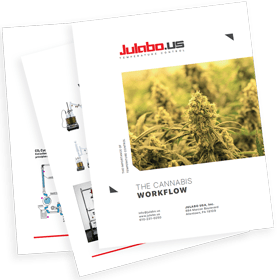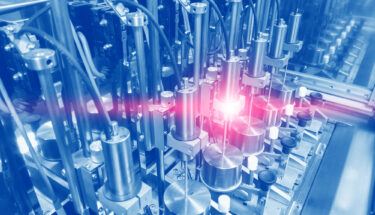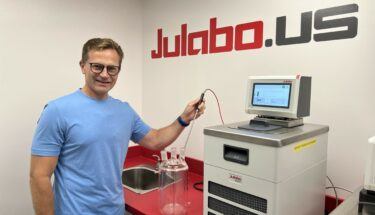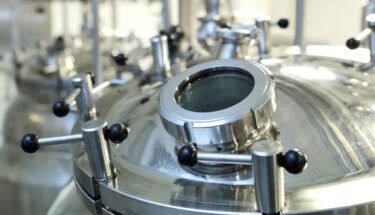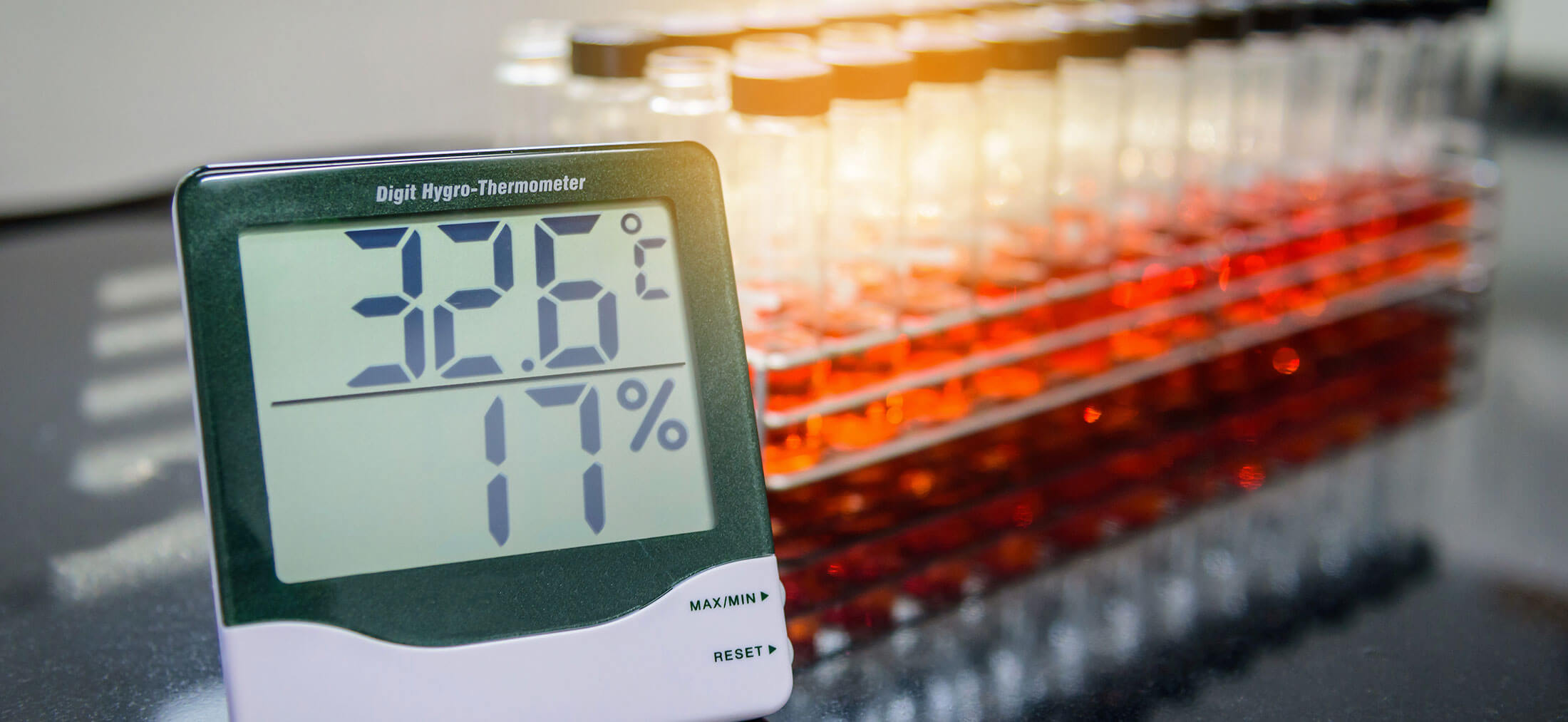
The Effect of Ambient Temperature and Humidity on Refrigerated Temperature Control Units
Ambient conditions; temperature and humidity, affect the performance and operation of refrigerated temperature control units (TCUs). Normal laboratories with adequate HVAC supply typically do not experience this issue. However, in locations without air conditioning (pilot plant, manufacturing facility), the ambient temperature and humidity can vary greatly throughout the year.
Temperature
Ambient temperature impacts air-cooled refrigeration systems greatly. Manufacturers determine a TCU cooling capacity under standard indoor atmospheric conditions, such as 20 °C at 50% humidity. The cooling power provided by the recirculated fluid results in a greater amount of heat rejected from the TCU via the integrated condenser, motors, electronics, etc. The refrigeration system relies on the ambient air temperature to remove heat from the compressed refrigerant to lower its temperature and convert it into a liquid state. Maximum cooling performance in testing utilizes room temperature air such that it provides enough of a temperature differential (air temperature vs. temperature of compressed refrigerant) with airflow from the integrated fan. As the ambient temperature increases to 40 °C, the temperature differential decreases, thus lowering the efficiency of the condenser and reducing the cooling power. Think of it this way: you cool down much faster after a long run on a 70 °F day compared to a 90 °F day. A refrigeration system specified for maximum performance at room temperature can lose up to 75% of its rated cooling power when operated in 100 °F conditions.
Humidity
High humidity conditions impact air-cooled refrigeration systems like high ambient temperatures. Humidity lowers the efficiency of the condenser, stressing the compressor and increasing refrigerant pressure.
In Houston, on a hazy, hot, and humid day you place a glass of ice water on a table, and in no time, water condenses on the outside of the glass forming a puddle on the tabletop. Doing the same on a hot day in Phoenix leaves the tabletop dry. What does this have to do with a refrigerated TCU? Open bath systems operating at sub-ambient temperatures do not have a seal against exposure to atmospheric conditions. Running a process at -40 °C on a humid day in the lab will result in atmospheric moisture condensing into the bath fluid. Over time this affects TCU performance, particularly when using heat transfer fluids not miscible with water. Ice forms in the fluid, causing a cloudy appearance and can accumulate on the refrigeration evaporator coils, essentially insulating them (like the glass of ice water in Houston). This results in a loss of cooling power and, if enough ice particles circulate, could damage the pump. To return the TCU to full performance requires removal of the accumulated water in the heat transfer fluid or complete replacement of the fluid. Options to circumvent the condensation include the use of a condensation trap on the TCU bath tank lid. This device has a cold finger immersed in the cold fluid and acts as a trap to collect ice before any moisture contacts the cold heat transfer fluid.
A better TCU technology exists to alleviate moisture condensation in the heat transfer fluid via the cold oil overlay concept. This technique blankets the cold fluid circulated by the TCU with an internal layer of heat transfer fluid kept at room temperature. The room temperature fluid in the TCU contacting atmospheric conditions does not condense any moisture into the fluid (like the glass of ice water in Phoenix). JULABO PRESTO highly dynamic temperature control systems use cold oil overlay technology. PRESTO units operate at sub-ambient conditions continually without any ice accumulation in the heat transfer fluid. This ensures top cooling performance and eliminates system maintenance: no need to remove water from the heat transfer fluid.
Solutions
Use of water-cooled TCUs thwarts the detrimental effects of high heat and humidity on refrigeration performance. Cooling water removes heat from the refrigeration system maintaining optimal performance during operation in hot and humid environments. JULABO offers many water-cooled models; simply look for JULABO model names incorporating a “W” in them.
For questions about water-cooled TCUs for your laboratory or facility, visit JULABO USA or begin a conversation with one of our consultative account managers. Don’t let heat and humidity derail your process, contact us for temperature control solutions that suit your environment.

